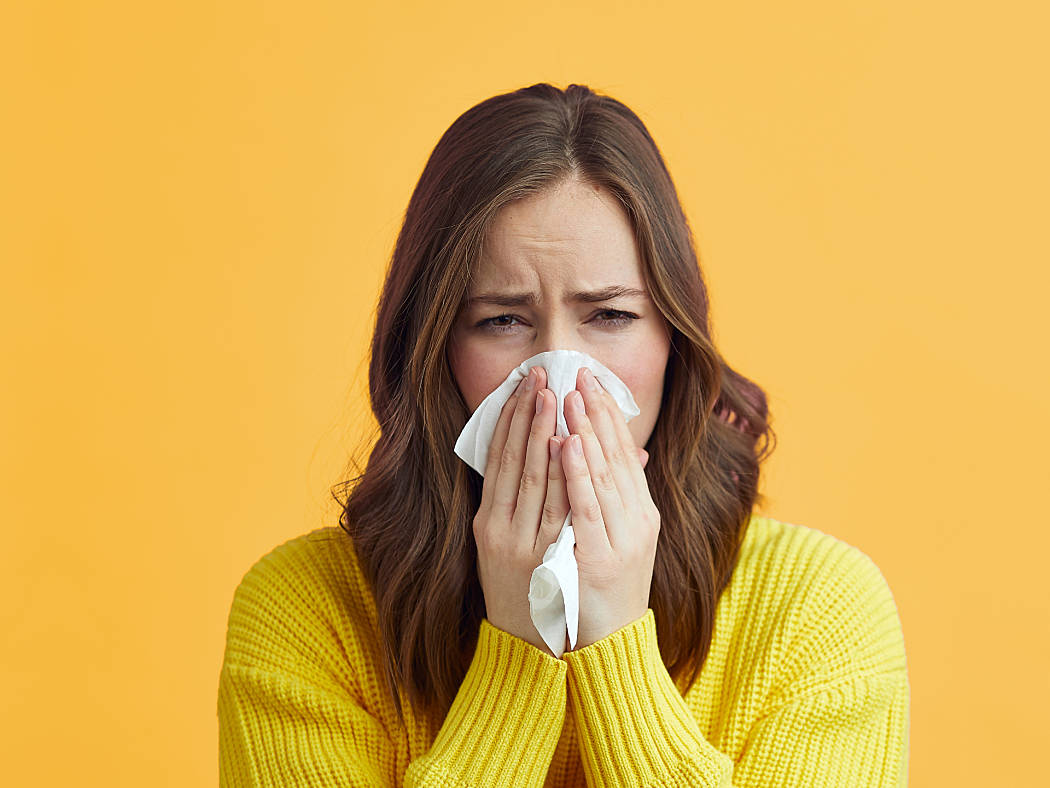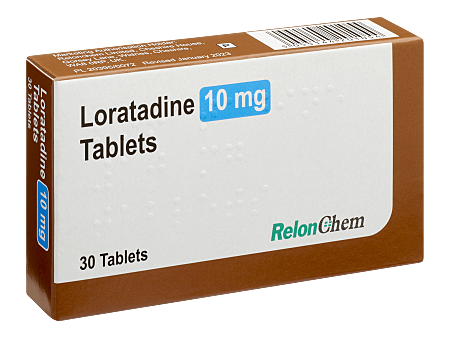
Hay Fever Treatment
Request prescription hay fever tablets & nasal sprays to relieve the symptoms of hay fever .
-

Request treatment quickly without any face-to-face appointments
-

Effective treatments to prevent hayfever and the symptoms it causes
-

Free delivery as standard
Hay fever is an allergic reaction to pollen. It occurs during the time of the year when plants release pollen and causes symptoms such as sneezing, a runny nose and itchy eyes. Hay fever tablets and nasal sprays can provide relief from symptoms during hay fever season. If over the counter products don't help, you can buy a prescription hay fever treatment.
The Superdrug Online Doctor service allows you to obtain a prescription and medication online. We offer Nasonex nasal spray as well as the hay fever tablets Neoclarityn and Telfast. Placing an order is simple - just fill in our brief questionnaire and choose your preferred treatment. Our doctor will review your order and approve an appropriate treatment.
If you are pregnant and need support finding the right hay fever treatment for you, our hay fever in pregnancy service can help. We'll make sure you're on a safe and suitable treatment that's right for you.
Available Treatments






Please check your spelling or try another treatment name.
Delivery Options
How it Works



About Hay Fever
What is hay fever?
If you suffer from hay fever, you are allergic to pollen. Pollen is a fine powder produced by plants such as trees and grass during certain times of the year. Most hay fever patients in the UK are allergic to grass pollen. Most commonly, hay fever symptoms occur in the summer months between May and August. However, some patients experience symptoms as early as January or as late as September.
Being allergic to pollen means that your immune system reacts to pollen as if it were a threat like a germ or a virus. Symptoms can include sneezing, a runny nose and itchy eyes. You may also experience headaches during hay fever season or generally feel tired and unwell.
Hay fever treatments such as tablets and nasal spray reduce the symptoms. They do not cure hay fever and the symptoms will come back as soon as you stop using a hay fever treatment.
Hay fever tablets
Hay fever tablets reduce unpleasant symptoms. They contain ingredients called antihistamines. Antihistamines stop the allergic reaction which causes hay fever. Therefore, hay fever tablets are also referred to as antihistamine tablets.
Histamine is a chemical that your body produces when it is exposed to pollen. It causes the symptoms commonly associated with hay fever. Antihistamines act on certain receptors in your body to block the action of histamine. As a result, the allergic reaction and its symptoms are prevented.
Will hay fever tablets make me drowsy?
Some hay fever tablets can make you feel drowsy, depending on the antihistamine they contain. Older versions of hay fever tablets, for example Piriton, can make you feel drowsy. Newer antihistamine tablets, such as Neoclarityn and Telfast, are less likely to cause drowsiness.
Which side effects can hay fever tablets cause?
Hay fever tablets can cause side effects in some patients. Some antihistamine tablets can cause:
- drowsiness
- headache
- nausea
- dizziness
For a full list of side effects always read the patient leaflet supplied with your medication. It is important that you do not take hay fever tablets if you are allergic to any of the ingredients. Signs of an allergic reaction include difficulty breathing, skin rash and itching.
Can I buy hay fever tablets online?
You can order prescription strength hay fever tablets through Superdrug Online Doctor. We will ask you to answer a few questions about your health and your hay fever symptoms, so our doctor can decide whether antihistamine tablets are the most suitable treatment for you. Once your order has been approved, your hay fever treatment will be dispensed by a Superdrug pharmacy and sent to an address of your choice.
Hay fever treatment options
Hay fever tablets and nasal spray are not the only treatments for hay fever. Depending on your symptoms, there may be other suitable treatment options available. If you are mainly suffering from symptoms affecting your eyes you may find it helpful to use hay fever eye drops, which reduce the itching, redness, soreness and watering hay fever causes. Hay fever eye drops usually contain a histamine as the active ingredient, such as sodium cromoglycate or emedastine.
A more long-term hay fever treatment is immunotherapy. It involves exposure to the allergen which causes your reaction, either through an injection or by taking a tablet which contains it. Immunotherapy can take a long time to increase your tolerance towards pollen and is usually carried out in cases where the patient shows severe hay fever symptoms.
Corticosteroid tablets are also sometimes prescribed as a hay fever treatment. They reduce inflammation and provide effective relief from symptoms. However, they are only prescribed for short term relief from severe symptoms, as their use can cause side effects. It is not recommended to take corticosteroids as a hay fever treatment for more than 10 days.
Nasal spray
If you are mainly suffering from nasal congestion and a runny nose, you can use the nasal spray Nasonex to relieve symptoms. You can use the spray once every day, taking two sprays into each nostril. Nasonex contains cortisone, which reduces inflammation and helps you breathe.
Hay fever relief
While antihistamine tablets and nasal spray can relieve symptoms it is also advisable to minimise your exposure to the pollen you are allergic to. Once you have established which pollen is causing your symptoms you can use the met office pollen forecast to decide whether you should limit the time you spend outdoors during hay fever season.
Hay fever season
Pollen is released during certain times of the year. Different types of pollen are released at different times:
- Tree pollen - March to May
- Grass pollen - May to July
- Weed pollen - June to September Knowing which pollen you are allergic to will help you avoid exposure and symptoms.
How to reduce hay fever symptoms:
- stay indoors when the pollen count is over 50
- wash your face and hands at regular intervals
- keep windows and doors shut
- avoid other allergens, such as chemicals, pet fur and tobacco smoke
- limit your alcohol intake
Hay fever risk
Why some people develop hay fever is not currently known. The condition is thought to be hereditary, because children of hay fever sufferers have a higher risk of being allergic to pollen too. There are numerous unconfirmed theories about the causes of hay fever. Some scientists for example believe that children who spend less time playing outdoors have a higher risk of hay fever than children who regularly spend time playing outside.
It is also assumed that growing up in an overly clean and hygienic environment as well as exposure to chemicals may increase your risk of allergies and hay fever.
Researchers have found evidence that stress may also increase your risk of hay fever.
Can you take hay fever medication when pregnant?
Yes, it is usually safe to take certain hay fever medications while pregnant, but you should let your GP and antenatal team know of anything medication you’re taking. This is because some hay fever relief treatments aren’t suitable for pregnant women.
What hay fever medication is safe in pregnancy?
The following treatments can be used if you are pregnant
- Cetirizine
- Loratadine
- Fluticasone
- Other nasal sprays and eye drops
Be aware that these common hay fever treatments are not recommended for pregnant women:
- Decongestant medications, such as Sudafed
If you are pregnant and need support finding the right hay fever treatment for you, our hay fever in pregnancy service can help.
Fully trusted and UK-regulated










